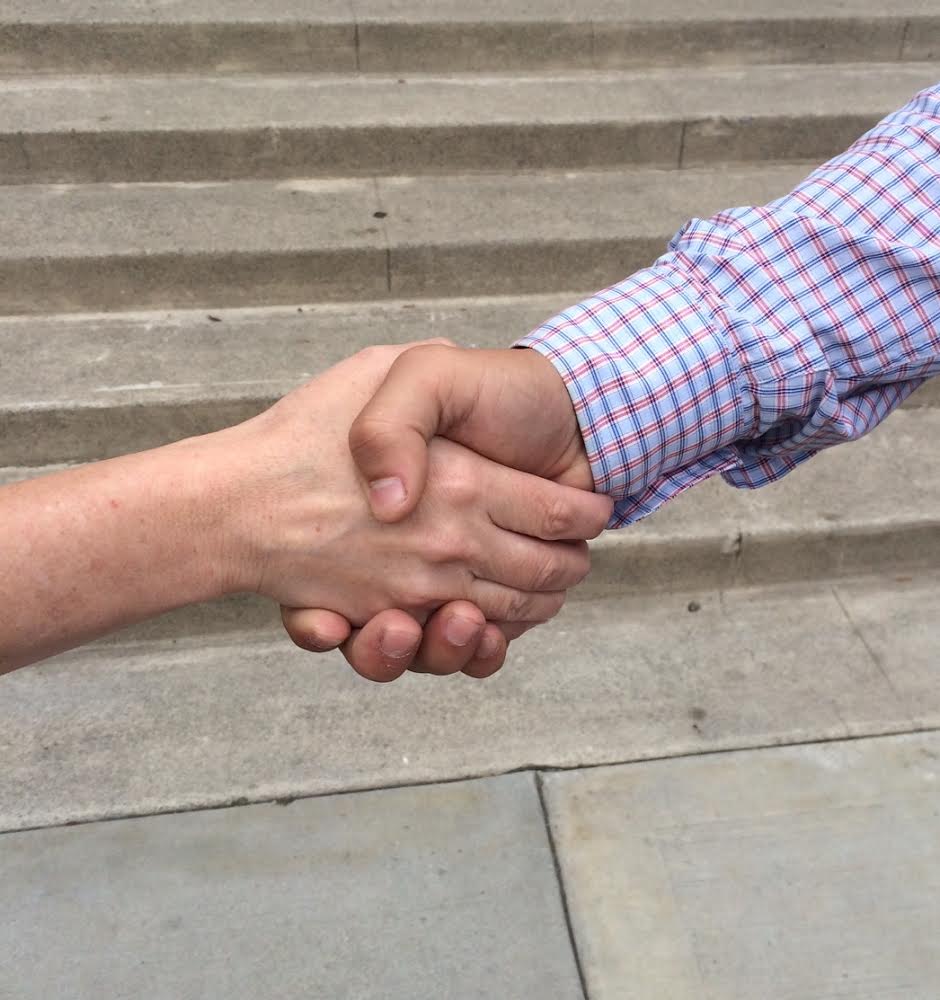Using Social Cues and Clues
to Your Advantage

Social cues are verbal or non-verbal signals that serve to guide conversations and interactions. Facial expressions, tone of voice, body language, gestures, and personal space allowances all help us "read" each other.
Whether the message comes through consciously or subliminally, you sense if you are welcome, if you can trust someone, or if someone is happy to see you - or not.
But the only way you will be able to consciously put the information to work for yourself is to first notice what you are noticing in social situations.
Social Cues and Clues
Learning social cues and clues is equivalent to learning a language. You learn much faster and more in-depth when you aim to be aware that it is often spoken indirectly.
Fortunately, you probably encounter other people and interact with them on a daily basis, so there is ample opportunity to practice noticing what you are noticing and using social cues and clues to improve your communication.
What social clues and cues do you see operating in these scenarios?
- Jill has entered a networking event and wants to find someone to approach. A woman is standing by herself, but her arms are crossed and she isn't looking around much. Jill instead approaches a person who has just left another conversation and makes eye contact with her.
- Kris is seated at a café waiting for a friend. She sees two people at another table pointing precisely in her direction. She wonders if they are talking about her. Are they pointing to something else? They are laughing. She pretends she doesn’t notice, and spends the next five minutes with her phone until her friend arrives. Kris blurts out, “You’re late!”
- Matt is speaking with someone and notices that the person is looking around as he’s talking. Matt concludes that boredom has crept in and he abruptly stops speaking and apologizes for being boring. (Actually, he’s been talking for 3 minutes straight.)
- Michelle is speaking with a friend at a party. Janice walks up and says “Hi” to Michelle. Michelle knows her friend doesn't like Janice, but she wants to appear polite so she tentatively ask Janice to join them. Michelle ends up talking far more than either of the other two people.
As you go about your day, try noticing the assumptions you are making about situations you are in or witness. The expressions, gestures, and overall body language we each use are constantly revealing something about us for others to read. Meaning will be read into our tone of voice, gestures, and eye contact - or lack of it.
Advancing Your Skills
Socializing is a part of life. Wherever you are and whomever you are with, you will be called upon to start a conversation, introduce someone or yourself, enjoy a meal with others, or attend a community meeting. All the while you will be reading and sending social cues and clues.
Noticing what you are noticing as you read social cues and clues is a part of personal growth and personal improvement. Being patient with others when you realize you’ve been misread will be appreciated.
Try a few of these techniques to improve the quality of your intentional communications:
- Make a game of it. Each time you attend a social gathering, set a goal for it. You might introduce yourself to three new people and have short conversations with each. Maybe you want to introduce those three people to three other people and practice politely leaving those conversations. Set your goals around things you're least comfortable with.
- Ask open-ended questions. This type of question gets you off the hook for a while and provide an opportunity to learn a lot about others.
"How is it that you chose to attend (name of school)?"
"I haven't been here long. What are some interesting things to see and experience here?"
- Ask for help! We all need help and there is no shame in asking someone you like and trust to practice interacting with you. This way you'll know if you are lacking in eye contact, if your handshake isn't up to par, or if you aren't listening.
- Write things down. Wherever you go, it's a good idea to have a written list of conversation-starter questions. Even if you don't use them, simply having the list in your pocket or bag can do wonders for your confidence!
Reading social cues and clues have helped you get through countless encounters, gatherings, and events. Making consistent effort to aim for mindfulness in social situations will pay off as the social cues you send and the clues you leave will be clearer for others to read.














